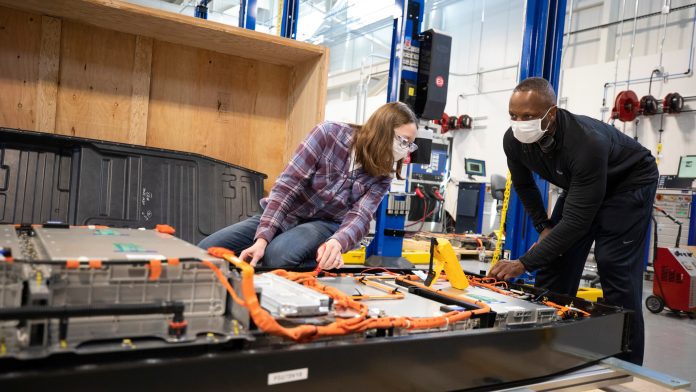Ford Motor Co. escalated its warnings on Monday over potential job losses at its electric vehicle battery plant in southwestern Michigan amid congressional talks to reduce clean energy tax credits. The $3 billion Marshall facility, located approximately 100 miles west of Detroit, is slated to produce 20 gigawatt-hours of lithium iron phosphate batteries and employ 1,700 workers when production begins in 2026.
The plant, still under construction, has faced political scrutiny since its 2023 announcement because Ford is licensing battery technology from China’s Contemporary Amperex Technology Co., Ltd. (CATL), the world’s largest battery manufacturer. Ford maintains complete ownership and control of the two million-square-foot site, which it says will be the first in the U.S. to produce LFP cells for automotive use.
At risk is the production tax credit, Section 45X, part of the Biden administration’s Inflation Reduction Act, which incentivizes domestic manufacturing of battery cells and packs. Under current law, Ford could receive about $2.3 billion in credits between 2026 and 2029, according to Benchmark Minerals. Ford’s Executive Chair Bill Ford has previously indicated that eliminating these credits would put the plant’s future in jeopardy.
China dominates global LFP battery production. Ford’s licensing deal with CATL aims to speed its ability to compete with Chinese EV manufacturers by adopting the cheaper and more stable battery chemistry.
The Marshall plant was initially planned to supply enough batteries for 400,000 electric vehicles, but Ford later lowered that target to about 230,000 units as consumer demand softened. To offer more affordable EVs, CEO Jim Farley has assigned a former Tesla executive and a specialized engineering team in California to develop a new line of small EVs priced below $30,000. The Marshall plant is expected to supply batteries for these next-generation vehicles.




